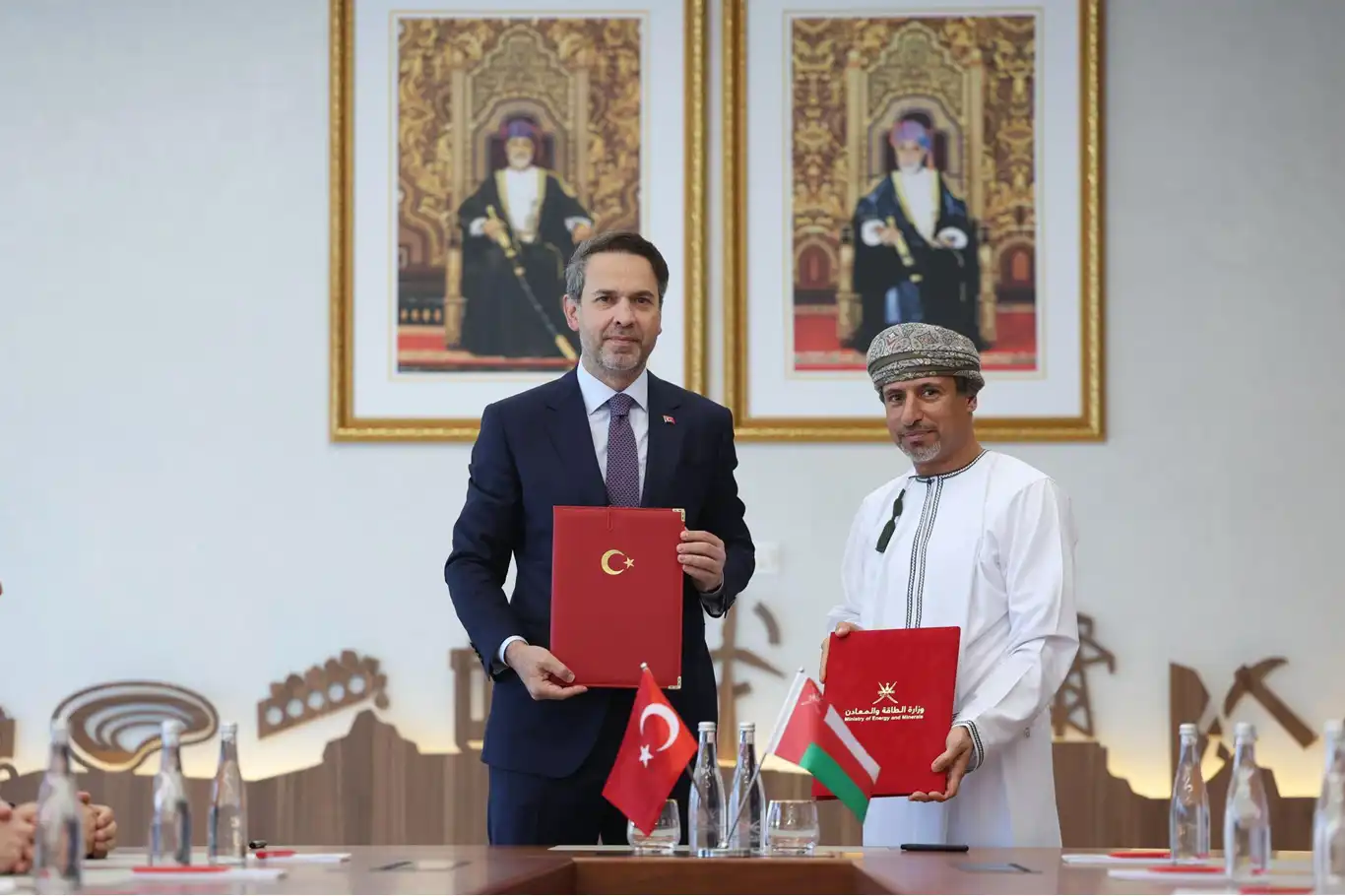Türkiye, Oman sign landmark oil, gas cooperation deal


Türkiye’s state-owned energy giant, Turkish Petroleum (TPAO), has signed a significant tripartite agreement with Oman’s Ministry of Energy and Minerals and OQ Exploration and Production (OQEP), granting exclusive rights to assess specific oil and gas fields in the Gulf state for a three-month period.
The deal was announced during an official visit by Türkiye’s Energy and Natural Resources Minister Alparslan Bayraktar to the Omani capital, Muscat, where he held bilateral meetings with Oman’s Minister of Energy and Minerals, Salim Nasser Al Aufi.
As part of the broader memorandum of understanding (MoU) signed on the same day, the agreement sets the stage for deeper energy cooperation between the two countries. It also included a separate pact between TPAO and OQEP aimed at exploring further investment opportunities across the upstream oil and gas sector.
Speaking after the signing, Minister Bayraktar described the agreement as a step toward “comprehensive collaboration,” noting that the two nations intend to work jointly across the entire energy value chain—from exploration and production to processing and transportation.
“This agreement aims to enable joint work across the full value chain,” Bayraktar wrote in a statement on social media platform X. “Technical knowledge sharing and co-development of projects are key to our shared ambitions.”
In addition to fossil fuel cooperation, the talks also covered potential joint ventures in renewable energy and infrastructure development.
Bayraktar met separately with Abdulsalam bin Mohammed Al Murshidi, Chairman of the Oman Investment Authority, where discussions focused on possible collaboration in petroleum, natural gas, clean energy, and power infrastructure—both within Türkiye and in third-country markets.
Officials on both sides signalled interest in translating the agreements into actionable projects with long-term economic benefits.
The Gulf nation of Oman relies heavily on its hydrocarbon industry, with oil and gas revenues accounting for around 70% of government income and roughly 30% of its gross domestic product (GDP), according to figures from the International Trade Administration.
As of mid-2022, Oman’s proven reserves were estimated at 5.2 billion barrels of crude oil and 24 trillion cubic feet of natural gas. The country’s Ministry of Energy and Minerals has projected that recent discoveries could boost daily oil production by 50,000 to 100,000 barrels within the next two to three years.
The agreement marks a notable expansion of Türkiye’s strategic energy outreach in the Gulf region, as Ankara continues to strengthen its presence in global upstream markets. It also comes at a time when energy-importing countries such as Türkiye are seeking diversified supply sources and greater involvement in exploration and production partnerships abroad.
Energy analysts say the cooperation between Türkiye and Oman could pave the way for future multi-sectoral collaboration, particularly in light of growing interest in renewable energy and energy transition technologies across the Middle East. (ILKHA)
LEGAL WARNING: All rights of the published news, photos and videos are reserved by İlke Haber Ajansı Basın Yayın San. Trade A.Ş. Under no circumstances can all or part of the news, photos and videos be used without a written contract or subscription.
HÜDA PAR Chairman Zekeriya Yapıcıoğlu issued a forceful call in the Turkish Grand National Assembly (TBMM) on Friday for Türkiye to suspend its recognition of Israel and to urgently enact legislation that would criminalize genocide.
The Gaza Conference, a landmark gathering of over 150 scholars and religious leaders from more than 50 countries, concluded Friday at the Hagia Sophia Grand Mosque with the issuance of the Istanbul Declaration.
Turkish President Recep Tayyip Erdoğan has penned a major article in Nikkei Shimbun, one of Japan’s leading newspapers, urging Asia’s “two ends” — Türkiye and Japan — to act as a collective conscience for the world.
Türkiye’s parliament will convene in an extraordinary session on Friday to address the worsening humanitarian catastrophe in Gaza, where months of relentless Israeli aggression have killed tens of thousands of Palestinians and plunged nearly two million people into famine.